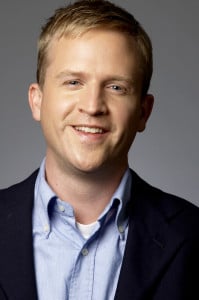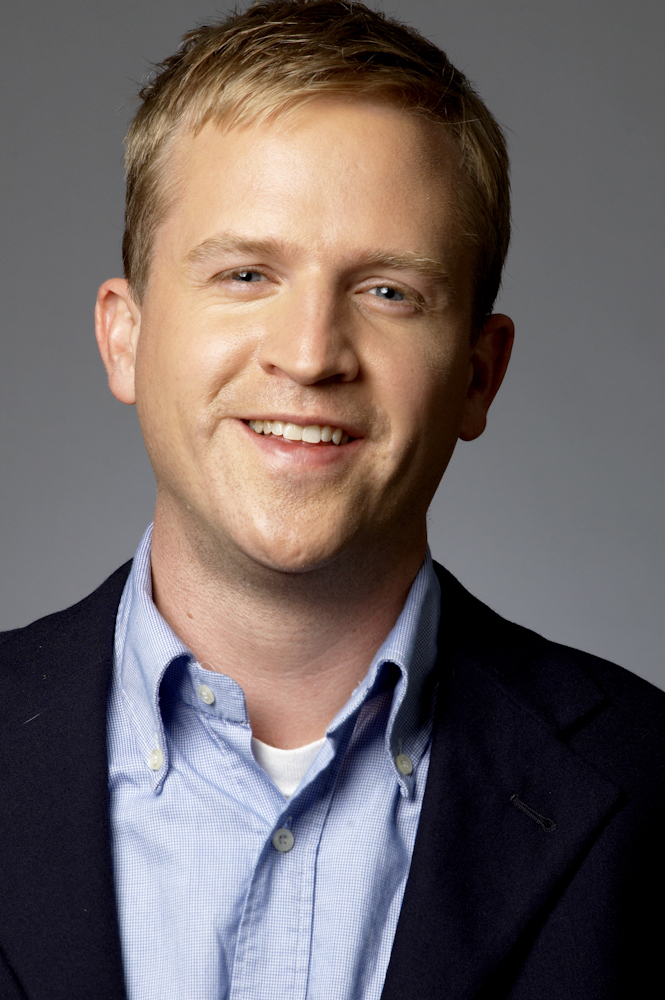
Flannery, now CEO and co-founder of Kiva, reminisced about the scene wistfully.
“I was living with my roommates in Suites and we dressed up as Vikings for graduation,” he said. “We actually built this massive ship that was 20 feet long and we got in it and…walked across campus and tried to get it into the stadium.
“Because of the high security we couldn’t bring this massive apparatus inside, and here we are, these Vikings without a ship,” he added. “That’s how I felt after graduating – without any direction.”
Flannery, by his own admission, felt purposeless after Stanford. The structure and rigor of his collegiate life had suddenly vanished, and the “bubble” that had insulated his Stanford life had not adequately prepared him for a transition into the professional world. He muddled through various jobs, ending up at TiVo “running usability experiments, watching people watch TV.”
Flannery was not thrilled with his work, and what he thought would be “a real job, a path to a real career” was instead a daily exercise in tedium.
Four years into his job, Flannery and his co-founder, Jessica Jackley MBA ’07, went, as they did once every few evenings, to Stanford to watch a talk. The speaker happened to be Muhammad Yunus, the Nobel Prize-winning microfinance pioneer. The pair was mesmerized, and Jackley resolved to move to Africa to invest her life into the field of microfinance. Matt had no choice but to follow.
“It was like being hit over the head with purpose, because I had a number of life-changing interactions there and gave my life a whole new direction,” Flannery said. The visit allowed the pair to learn about life in Uganda, Tanzania and Kenya and gave them the chance to engage in simple but meaningful field research. For Flannery, it was “a nice distraction from working at TiVo and allowed for a period of great creativity and innovation.”
However, the creation of Kiva was much more gradual than Flannery’s gung-ho expedition would suggest.
“Jessica stayed in Africa but the idea stayed with me, so I would just spend my nights programming in my apartment in San Francisco after my day job was over,” he said.
The nonprofit that was the fruits of his efforts, now “web-based microcredit platform” Kiva, was then exclusive to the individuals and nonprofits Flannery was in communication with in Uganda. It was “a very, very captivating hobby,” he said, but not intended to become the service it is today.
In December 2005, Kiva began in earnest. But it was not out of an overwhelming dedication to philanthropy that Matt decided to expand the nonprofit.
“I was looking for some kind of significance in life, I think,” he explained. “I think I have the type of personality that if I didn’t leave my mark…my life would be worthless.”
Despite a sincere desire to help people, Flannery’s creation of Kiva was just as much about self-realization as the desire to alleviate poverty.
“I was searching so much for answers and was really unsatisfied with the fact that all I was doing was sitting at a computer or watching people watch TV,” he said. “I had this existential angst.”
He was sure he wanted to “start a startup, because that was a path to meaning.” He kept a journal of startup ideas, adding a new one everyday. Just one of them was Kiva, and what distinguished Kiva from the others was the connection he felt with the idea.
“Six weeks on, I was more excited about it than I had been initially,” he said.
He pursued the idea, for which he says there were more detractors than supporters. Despite that fact, the “idea’s momentum continued to build” and he “saw himself doing it.”
“[When] you want to do something even if no one else cares, that’s a good sign,” he said.
Kiva now operates in 66 countries and has delivered and repaid over $360 million in loans that provide people with capital they more than likely would not have been able to receive conventionally.
Kiva can boast a repayment rate of 99 percent and has recently launched a service named Kiva Zip, a project still in alpha testing. Kiva Zip removes the intermediaries that facilitate Kiva loans and allows Kiva lenders to lend directly to individuals in Kenya and the United States through mobile payments and PayPal, respectively.
Flannery discussed that he is prone to emotional swings that take him from one end of the spectrum to the other. He admitted to feeling a depression of sorts in his post-Stanford wandering and described the “existential angst” which compelled him to search for a life of meaning.
It was this search, however, that led him to Kiva. Flannery acknowledges the strange path he has taken, but one thing he is sure about now is that he is happy where he is.
